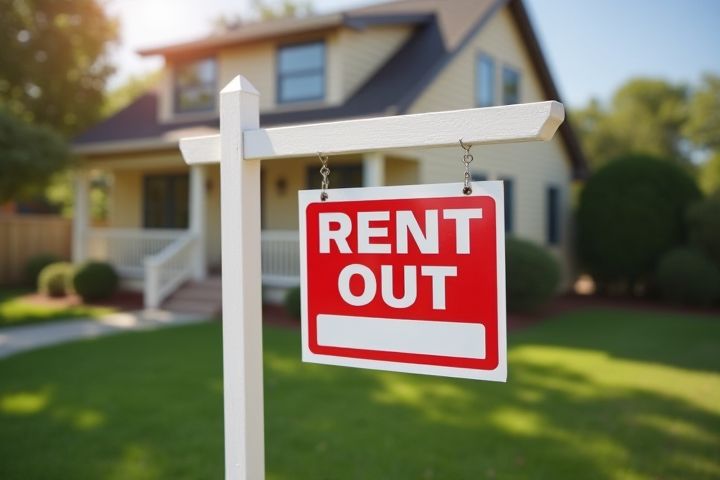
Renting out a house can be a straightforward process, especially when you prepare adequately. Start by setting a competitive rental price, researching nearby properties on platforms like Zillow or Craigslist to gauge market rates. Effective marketing strategies, such as high-quality photos and detailed property descriptions, attract potential tenants quickly. You may also consider utilizing social media or local rental agencies to enhance visibility. Lastly, screening applicants with credit checks and rental history ensures you find responsible tenants, securing your investment for the long term.
Can We Rent Out A House Easily
Local rental market demand
Examining the local rental market demand reveals key factors influencing your ability to rent out a house easily. Areas with high employment rates, educational institutions, and vibrant amenities typically experience greater rental demand, attracting potential tenants. Understanding local rental trends, such as pricing and property features that appeal to renters, can significantly enhance your marketing strategy. By positioning your property effectively in a thriving rental market, you increase the likelihood of securing reliable tenants quickly.
Zoning and rental laws
Renting out a house can be straightforward if you understand local zoning regulations and rental laws. Zoning laws dictate how properties can be used, impacting residential, commercial, and mixed-use designations, which can affect your ability to lease your property. It's crucial to research tenant rights, lease agreements, and local rent control ordinances to ensure compliance and avoid legal issues. By staying informed about zoning and rental laws, you can facilitate a smoother rental process and safeguard your investment.
Property management options
Renting out a house can be streamlined with effective property management options. A professional property management company typically charges between 8% to 12% of the monthly rental income, offering services such as tenant screening, rent collection, and maintenance oversight. Utilizing platforms like Airbnb or Zillow Rental Manager allows you to reach a larger audience with minimal effort, often leading to quicker occupancy rates. Implementing technology, such as automated communication tools, can also enhance tenant interactions and ensure timely responses, ultimately improving rental success.
Necessary property maintenance
Renting out a house can be smooth if you prioritize necessary property maintenance, ensuring the dwelling is in top condition for tenants. Regularly inspect systems like plumbing, heating, and air conditioning, as well as essential fixtures to prevent larger issues. A well-maintained property not only attracts quality tenants but can also reduce vacancy rates and increase rental income. By investing in routine maintenance, you secure both the longevity of your investment and the satisfaction of your tenants.
Rental pricing strategy
Setting a competitive rental pricing strategy is crucial for successfully renting out a house. Analyzing the local real estate market can help determine an appropriate rental price, factoring in comparable properties, neighborhood demand, and seasonal trends. Implementing dynamic pricing strategies, such as adjusting rates based on lease length or offering discounts for early payments, can attract more potential tenants. You should also consider enhancing curb appeal and modern amenities to justify your rental price and create a more enticing offer for prospective renters.
Tenant screening process
The tenant screening process plays a crucial role in successfully renting out your house, ensuring you find reliable tenants who can fulfill their lease obligations. This process typically includes verifying the tenant's credit history, employment status, and rental history, along with conducting background checks to assess their suitability. Statistically, landlords who thoroughly screen potential tenants can reduce the risk of late payments and property damage by up to 50%. By investing the time in this process, you significantly increase your chances of a positive rental experience and long-term occupancy.
Lease agreement terms
Renting out a house can be straightforward if you understand the lease agreement terms. A well-structured lease outlines essential details such as rental price, duration, security deposit, and maintenance responsibilities. Knowing the legal obligations of both landlord and tenant can prevent disputes and ensure compliance with local rental laws. By clearly defining these terms, you create a transparent rental process, making it easier for you to attract reliable tenants.
Insurance requirements
Renting out a house requires careful attention to insurance requirements to protect your investment. Landlord insurance typically covers property damage, liability protection, and loss of rental income, making it essential for safeguarding your assets. Depending on your location, you might need to consider additional coverage such as flood or earthquake insurance, which can vary significantly in cost. Always review local regulations and consult with an insurance agent to ensure your policy meets legal requirements and adequately protects your rental property.
Tax implications
Renting out a house involves understanding various tax implications that can significantly affect your income. Rental income is generally taxable and must be reported on your tax return, but you can also deduct several expenses, such as mortgage interest, property taxes, and maintenance costs. Additionally, depreciation can provide a substantial tax benefit, allowing you to deduct a portion of your property's value over time. Proper record-keeping of all income and expenses is essential to maximize these tax advantages and ensure compliance with tax regulations.
Marketing the property
Marketing a rental property effectively involves showcasing its unique features and amenities to attract potential tenants. Utilize high-quality images and engaging descriptions to highlight aspects such as location, square footage, and nearby attractions. Leveraging online platforms and social media can significantly enhance your reach, allowing you to connect with a broader audience. Consider offering virtual tours to provide a convenient way for interested renters to explore the property from the comfort of their own homes.
